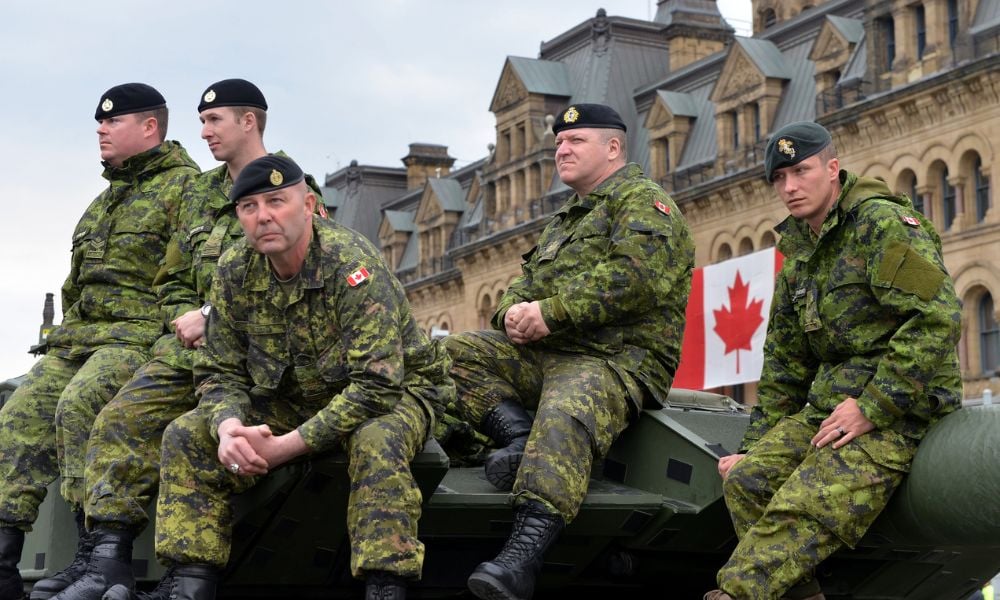
'Allowing additional job-protected leave will support retention in the military and the workforce'

Military reservists in Ontario may soon have a guarantee that they can return to their pre-service employment after recovery and treatment from mental and physical injuries.
Ontario is proposing legislation that would provide job-protected leave for reservists who would require physical and mental treatment after their service.
“We often think of the physical injuries soldiers suffer, but mental trauma experienced is no less severe,” said Monte McNaughton, minister of labour, immigration, training and skills development.
“The brave men and women in our Canadian Armed Forces put their lives on hold to protect our freedom. They deserve to know that their job will not only be protected when they’re away but also should they need time to recover from physical or mental injuries.”
Of the Canadian 40,000 soldiers deployed in Afghanistan, nearly one in seven developed a mental injury attributed to trauma from their mission, says the government.
Also, the proportion of individuals who screened positive for post-traumatic stress disorder (PTSD) was 5.3 per cent for regular force Canadian veterans, 4.5 per cent for reserve force Canadian veterans, 3.5 per cent for non-Canadian veterans and 5.3 per cent for non-veterans, according to a study in the Journal of Military, Veteran and Family Health.
The new legislation also allows reservists to respond and deploy to domestic emergencies – including search and rescue operations, recovery from national disasters such as flood relief, and military aid following ice storms – even if they just started a new job.
Reservists would still be eligible for job-protected leave when deployed abroad or upgrading their military skills after just two months – as opposed to the current three.
The proposed legislation would amend Ontario’s Employment Standards Act, 2000 to expand reservist leave to include the employee in physical or mental treatment, recovery or rehabilitation related to participation in a military operation or specified activity.
Previously, Ontario introduced the Working for Workers Act, 2022 which sought to protect the day jobs of training or deployed military reservists by expanding job-protected leave and trimming down the six-month continuous employment requirement to just three months.
Several stakeholders welcome the new Ontario legislation.
"Military leave is key to helping unlock the potential of the many Canadians who serve in the Reserve Force by giving them peace of mind while participating in military operations or activities,” says Major-General Rob Roy MacKenzie, chief of reserves, OMM, CD.
“Reserve Force members are a vital component of The Canadian Armed Forces but are also crucial in their civilian careers, including careers within the unionized construction industry,” says Joe Maloney, founder and executive director, Helmets to Hardhats Canada. “Allowing additional job-protected leave will support retention in the military and the workforce while ensuring Canadian reservists can return to work safely and sustainably."
In 2021, Coding For Veterans rolled out a series of road trips to help recruit those members of the army, navy and air forces in Canada who are considering another career in tech.